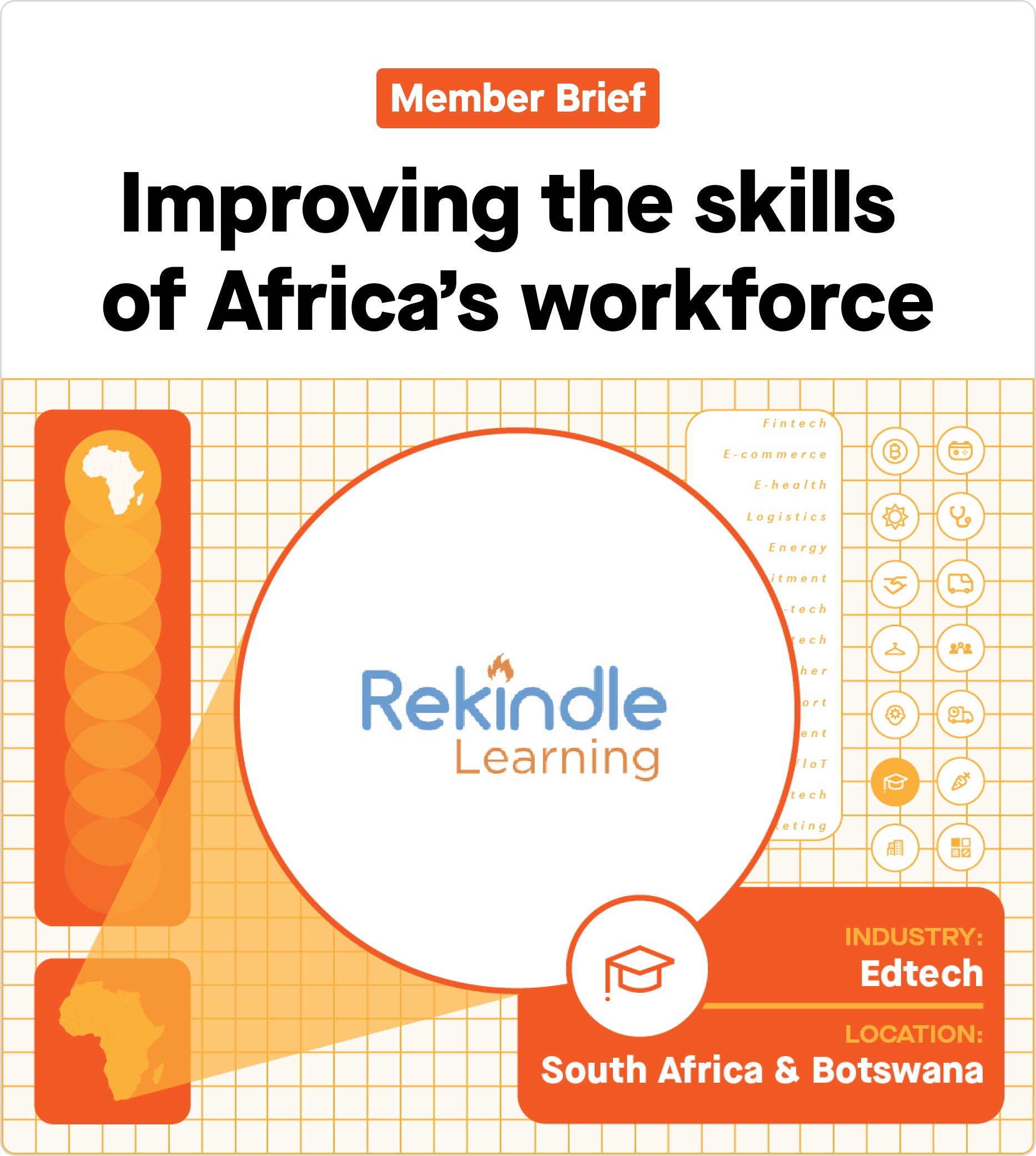✦ Improving the skills of Africa’s workforce
Edtech startups are looking to teaching Africa’s workforce new skills in the post-pandemic era


Hi Quartz Africa members,
Businesses around the world are finding it harder than ever to stack their teams with the skilled talent they need. The global talent crunch hit a 16-year high in 2022 as three in four companies reported difficulties hiring qualified staff in a survey by Manpower Group of 40,000 employers across 40 countries. Roles in IT and data, sales and marketing, operations and logistics, as well as manufacturing, represent the bulk of highly sought-after talent.
This data doesn’t entirely come as a surprise, considering recent news about McDonald’s battling to recruit new staff, or major airports in Europe being disrupted by labor shortages. But in South Africa, Africa’s second-largest economy, the talent shortage stands above the global average, at 78%, largely due to skills and education mismatches in the job market.
Korn Ferry, a management consulting firm, estimates that, if left unchecked, the financial impact of the global talent shortage could reach $8.5 trillion (pdf) in unrealized annual revenue by 2030. This talent crunch, combined with more routine unemployment, poses a threat to the growth of businesses and economies in Africa.
Young people have been hit the hardest by unemployment, and they continue to miss out on opportunities despite labor shortages. The total number of unemployed youth (aged 15-34) in South Africa in the second quarter of 2022 increased by 2% from the previous quarter to hit 4.8 million. The overall unemployment rate stood at 33.9%.
Of the 10 million young people in South Africa, 7.7 million are described as inactive. The South African government says many of these people have lost hope of finding a suitable job.
To tackle unemployment, nurture talent, and stem labor shortages, a wave of innovation is emerging in education and jobs-related technology. Startups are devising new ways to support employers looking for skilled labor in Africa.
Cheat Sheet
💡The opportunity: Employers in Africa are struggling to find the skilled talent they need to grow their businesses, allowing startups to reskill and upskill individuals to plug the gap.
🤔The challenge: The cost of offering high-quality education, resources, and materials to train people can be high for individuals, employers, and startups alike.
🗺️The roadmap: Startups can help stem labor shortages by affordably equipping people with the skills they need to thrive in dynamic business environments.
💰The stakeholders: Employers, startups, education providers, regulators, governments.
By The Digits
78%: The proportion of companies facing difficulties in finding the talent they need in South Africa in 2022
10 million+: South Africans aged 15-24 years
2.5 million: South Africans aged 15-24 years currently in the workforce, either employed or unemployed
7.7 million: Total number of those aged 15-24 years in South Africa deemed “inactive,” having fallen out of the labor force
33.9%: Total unemployment rate in South Africa
4.8 million: Total number of youth (aged 15-34) looking for work but currently unemployed in South Africa.
$8.5 trillion: Projected unrealized annual revenue by 2030 if the global talent crunch goes unchecked
Case Study
Rekindle Learning
Operating in: South Africa and Botswana
Rapelang Rabana founded Rekindle Learning eight years ago. Her goal, she told Quartz, was to help ensure that learning and education translate into economic opportunity. Rekindle works mostly with companies looking to boost the skills and capabilities of team members.
Rekindle’s reskilling and upskilling services cover everything from sales and compliance to IT and data, cybersecurity, and English. The fast-evolving nature of work, accelerated by the covid-19 pandemic, puts Rekindle in a prime position to help teams in southern Africa adapt to changing technologies and job requirements. Rekindle currently operates in South Africa and Botswana.
Rabana and her team have worked with several companies across sectors including retail, financial services, and communications. Among Rekindle’s clients are African Bank and Orange. In the case of African Bank, around 100 bankers went on the Rekindle app for six months as they prepared for a key certification exam. The employees who then took the exam reported a 31% increase in their average score, compared to the previous year.
A big draw for companies is that Rekindle makes it easier to track learning outcomes compared to, say, traditional workshops. Most learners who use Rekindle are either young or middle-aged professionals. Rekindle’s platform ensures engagement and makes educational content easier to consume.
The platform’s approach to learning is based on two strategies: microlearning and adaptive learning. Microlearning refers to the consumption of bite-sized educational content in short bursts of time. Rekindle’s learning resources, such as flashcards and short videos, are easily accessible across platforms including Android, iOS and the web. Adaptive learning, on the other hand, is the customization of learning experiences. In Rekindle’s case, it offers interactive quizzes with corrective explanations for each question based on the user’s answers.
According to Rabana, Rekindle has had the biggest impact in the area of sales and digital skills. Data show that, globally, sales and marketing professionals are the second most sought-after today.
Rekindle is also finding that digital skills are increasingly crucial for workers across almost all sectors. While many associate IT skills with the likes of coders and designers, nearly everyone, including nurses, managers and teachers, needs to comfortably use the various tech tools reshaping their fields today.
Courses on the platform can cost anywhere between R295 ($16) and R1725 ($95) per student. Companies partnering with Rekindle pay subscriptions and product licensing fees based on the number of employees, and can customize the learning experience and timetables to suit the work schedules of their employees.
Rekindle is keen to move into the core education space, and is currently experimenting with targeted interventions including after-class programs. In coming years, it hopes to expand its offering and its footprint, to markets including Kenya.
In Conversation with Rapelang Rabana

🔧 On plugging the skills deficit:
“Given the high unemployment rate and job vacancies, there is a deficit of the skills that organizations require to perform today. We focus on making people more employable.”
🖥️ On the demand for digital skills training:
“It’s about tech fluency. The kind of [tech] skills in demand today apply across different spaces. Most of us think of these skills as just IT and data science, but that’s never going to be the bulk of it…There is space for inclusion in basic skills to drive active participation in the digital economy.”
📈 On what companies are looking for in learning experiences:
“Most of our clients have had traditional learning management systems, but these old systems are not really tools that drive knowledge retention, and that’s why we help them integrate better systems. Companies no longer just want to say that 30 people attended a workshop, they are keen on outcomes.”
More Edtech deals to 👀
FoondaMate, a South African edtech startup, raised $2 million in seed funding in May 2022. The platform, with features including a learning chatbot on WhatsApp, offers access to revision materials and interactive quizzes.
uLesson, a Nigerian edtech startup, announced the close of a $15 million Series B round in December 2021. The learning app provides a range of resources for primary and secondary school learners, including video lessons.
Craydel, a Kenya-based edtech startup, raised $1 million in November 2021 to expand beyond the country. The startup enables working professionals and students to access courses from a pool of local and international universities.
This member brief was prepared while listening to “Dancehalling” and more music by Unco Jing Jong 🇰🇪. Have a great week!
—Martin Siele, Nairobi-based contributor
One 🤯 thing
Africa has the youngest population in the world. Around 70% of the population is below the age of 30. The median age is 20, and 60% of the population is below the age of 25.